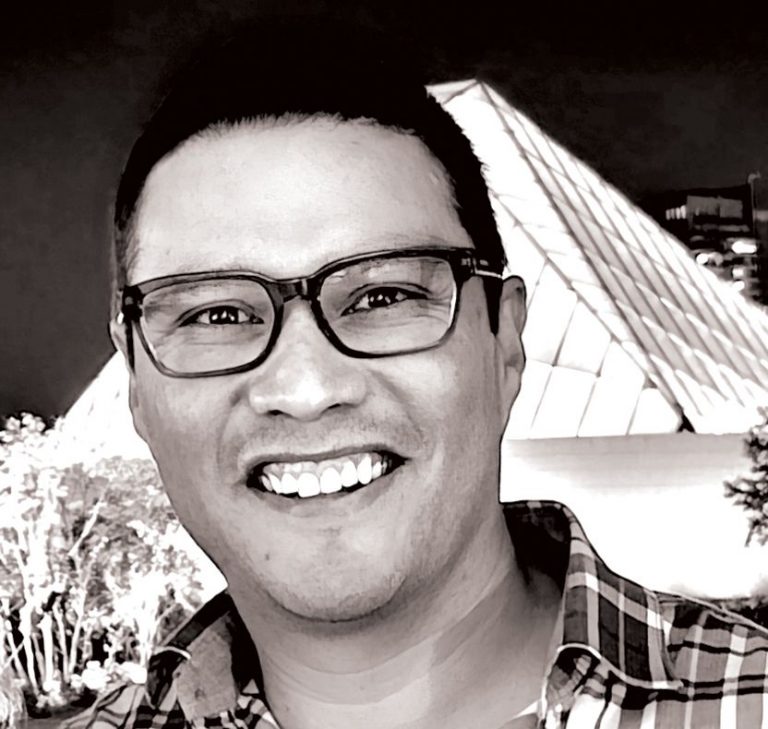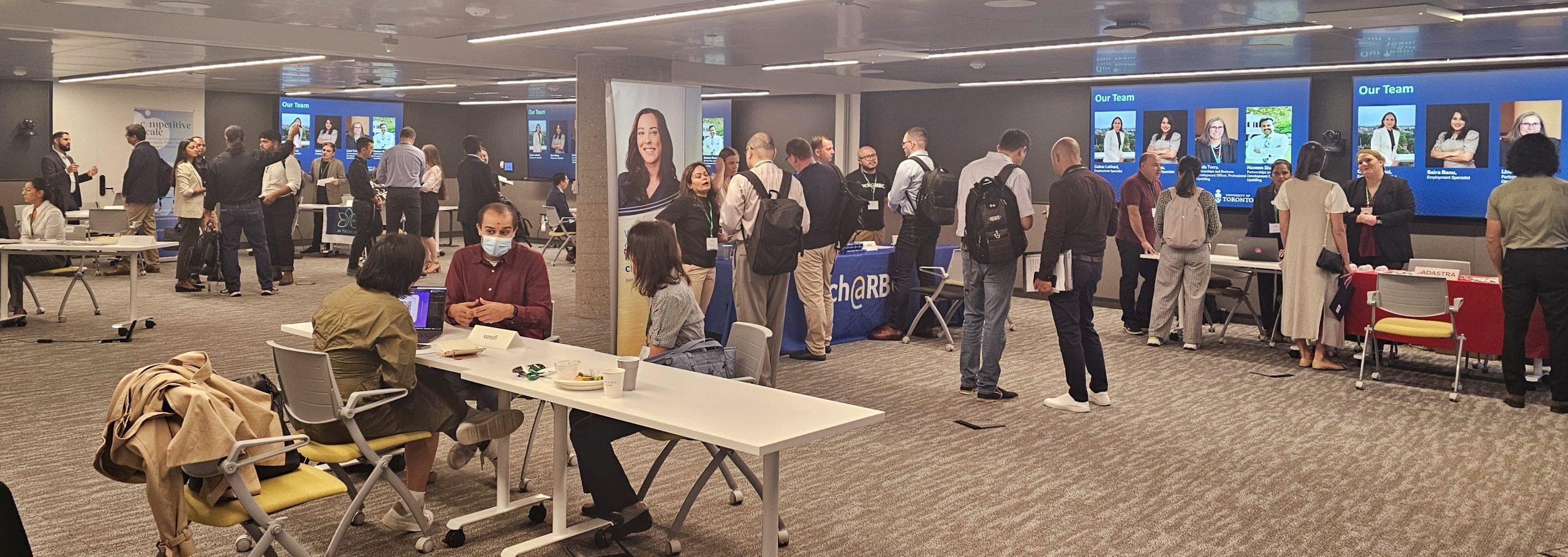Participants are seeking employment as data and reporting analysts, data coordinators and technicians.
The Data Sciences Institute (DSI) is a tri-campus, multidisciplinary hub for data science at the University of Toronto (datasciences.utoronto.ca). It facilitates research connections, fosters innovation and enhances teaching and learning in data sciences, including emerging data-driven disciplines. The DSI, with the financial support of Upskill Canada, powered by Palette Skills and the Government of Canada, also offers an intensive, 16-week certificate in data science or machine learning software for people with a university or college degree who have three years or more of work experience. They’re learning programming skills in languages such as Python and SQL. The participants are seeking employment in sectors like healthcare as data analysts, reporting analysts, data coordinators and data technicians.
In this article, we interview leaders at two Canadian companies who are hiring certificate-holders from the Data Sciences Institute. They discuss why they’re working with the DSI, and how hiring Data Science Institute participants will benefit their organizations.
*article reprint from original in Canada Health Technology
Photos: Canada Health Technology

Javier Diaz, PhD, is head of data science at Phenomic AI Inc., a rapidly growing start-up biotech company that’s devising solutions for combatting cancer. In particular, it aims to raise the survival rate for patients with the hardest to treat solid tumours. Phenomic AI is doing this by identifying new targets in tumours for drugs. The work involves AI and machine learning. The company recently partnered with global pharmaceutical giant Boehringer Ingelheim in a business deal that’s potentially worth more than $500 million to Phenomic AI, which is based in Toronto and Boston.
Canadian Healthcare Technology: What appealed to you about hiring people who have completed the DSI’s certificate?
Javier: What I like about the Data Sciences Institute is that they don’t only train students in terms of technical aspects like programming and machine learning, but also they look for so-called soft skills, and they try to improve that in the students. I also like that the students have backgrounds in different areas, including healthcare. These are the ones we are interested in, as we’re collecting data about cancer. These persons know about cancer, know the cancer terms that biologists and clinicians use, which is not often trivial. Candidates from other places might have more experience with software engineering or machine learning, but they might not be aware of the terminology that is used by biologists or cancer biologists. So, they had the technical skills and the business knowledge, which was great. It saves a lot of time from our side in terms of onboarding them into the team.
Canadian Healthcare Technology: How many people have you hired from the DSI?
Javier: We have one person working already with us from the Institute and one more starting next week.
Canadian Healthcare Technology: Was the DSI sensitive to your needs? Did they filter the candidates they sent your way?
Javier: Yes, I spoke to them about our needs and then they sent me about four or five resumes of candidates that they thought would be relevant. We put out a job description that was shared with the students. The candidates they sent me were outstanding in terms of the business knowledge that they are bringing to the team. They know about cancer biology. They even know about the particular type of technology that we’re using, which is called single cell RNA sequencing. So, I think what made their candidates different from others was the biology knowledge that they have. And then they also know how to program, which is great. They really met our needs. They have the two aspects that we were looking for, the technical and the domain knowledge.
Canadian Healthcare Technology: What kind of work will your new hires from the DSI be doing?
Javier: They are going to help us keep up with onboarding new data from public repositories. So, we have a database with about 150 studies collected. We built some computational tools that will help us to streamline things so that we can onboard more data in a faster way. These two new team members will continue on that, making use of our tools and developing new tools to make this process even faster and more streamlined.
Canadian Healthcare Technology: So, they’re going to continue to develop the database?
Javier: Exactly. They’re going to curate the database – get more data and standardize it. We will identify data that we might be missing for some cancer types and some particular treatments, because we want to keep making our database more inclusive of all cancer types and bigger, and they will help us with that.
Canadian Healthcare Technology: As well as the domain knowledge, do the DSI hires have the technical skills?
Javier: They do know how to program, which is very important. The Data Sciences Institute spend most of the time teaching them how to use Python, and that’s exactly what we need. If you are going to pick only one language, speak Python. Because it’s more standard in the industry, regardless if they stay in the health sciences or they go to banks or finances or other industries. Python is the gold standard in industry.

Sepehr Sisakht is CEO of Shyftbase Inc., a Toronto-based company that produces software for supply-chain management. The five-year-old company has grown quickly by applying new technologies like machine learning (ML) and other forms of artificial intelligence to improve product deliveries and returns in a variety of industries. It is targeting healthcare, which Mr. Sisakht sees as needing modernization in the area of supply chain management. At the time of this interview, the company was about to hire a Data Sciences Institute participant.
Canadian Healthcare Technology: Have you hired a DSI participant?
Sepehr: We are interviewing three candidates. There were quite a few who were interested, but we have one position available. We haven’t finalized it yet, but we will decide on the candidate this week. All three are very, very good.
Canadian Healthcare Technology: What appeals to you about the skills of the participants from the DSI?
Sepehr: Well, they are being educated in data science, but they also have an education in other areas. If you are aspiring to be a really successful data scientist, I think previous experience is very important because you bring all those perspectives and you are able to look at problems from different angles. And with the technical knowledge that they’ve acquired through this program, I think those candidates can definitely excel, compared to a lot of other conventional computer science programs.
Canadian Healthcare Technology: What abilities do you need in a new hire, and do you see these skills in the DSI candidates?
Sepehr: I love to see hints of problem-solving skills and abilities. You want your data scientists to be able to take initiatives and look at problems from different angles. If they’re going to join your team, you want them to add value by looking at the data and being able to solve problems. Technical skills are great, but I think everybody can learn more on the job. On the other hand, not everybody has the drive in them to look at different angles for certain problems. The people from DSI have these problem-solving abilities.
Canadian Healthcare Technology: Do you think it’s productive to hire a person from DSI, who has
completed a short but intensive course in data science, rather than a person who may have done several years in a university-based computer science program?
Sepehr: In the long term, it’s the personality and the drive that you get from the person, rather than technical skill. It might be counterintuitive to a lot of hiring managers, because there’s a lot of focus on the resumes. But it’s somewhat ridiculous in terms of what is expected of candidates these days. Even when hiring for a junior role, everybody’s expecting five years of experience, which is unrealistic.
We’d rather hire someone who can think outside the box. We like to get a sense of their problem-solving skills. At the end of the day, that gives us a good indication of their skill set. And of course, we also look at their personality and whether they’ll fit in our team or not.
Canadian Healthcare Technology: Do you have confidence in the training DSI participants receive?
Sepehr: For sure, I mean U of T is obviously a very credible university and a credible source of talent. I came in contact with the DSI a while ago and learned about their programs. I myself used to do data science mentorship a few years ago, and I worked with aspiring data scientists. Once I learned about this program at the University of Toronto, I reached out and had a conversation. I wanted to work with them, as we had available positions. We wanted to part of their program and draw on their people.

